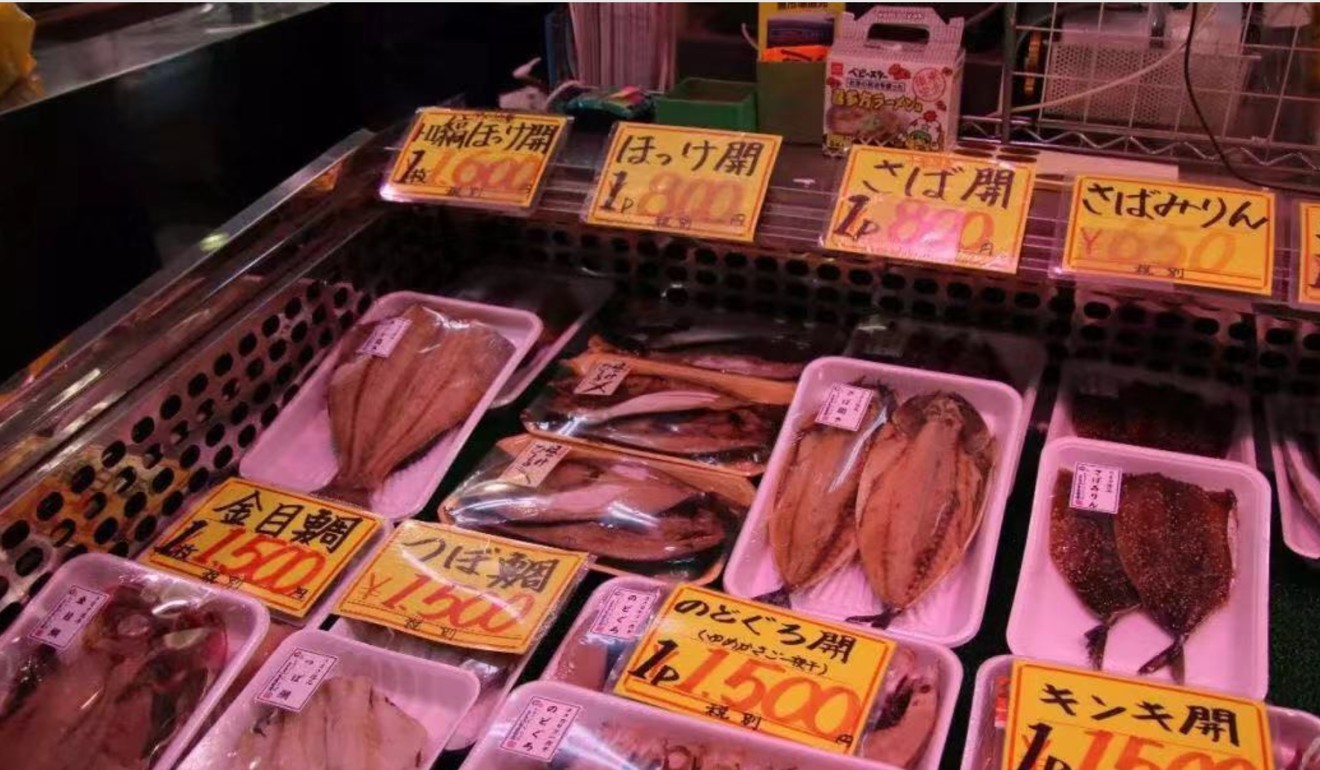
Cloud of suspicion in China over rice from near Japan’s nuclear meltdown zone
- Beijing has lifted a ban on rice imports from Niigata prefecture, neighbouring the Fukushima disaster area, but consumers will take some convincing to buy it
The Chinese authorities may be ready to lift a ban on importing rice from a Japanese prefecture neighbouring a nuclear disaster site but Chinese consumers might need more convincing.
China’s General Administration of Customs announced on Wednesday that it had lifted a ban on rice imports from Niigata, one of a number of prefectures neighbouring Fukushima, home to the Daiichi Nuclear Power Plant, which went into meltdown and released radioactive material in the aftermath of a tsunami in March 2011.
According to the World Health Organisation, radioactive iodine and caesium in concentrations above the Japanese regulatory limits were detected in some food commodities soon after the disaster.
China responded by banning imports of food and livestock feed from 10 prefectures.
More than seven years later, Niigata is the first area to have the ban lifted on its rice. “After evaluation, we permit Niigata rice to be imported,” the customs administration said on its website.
It said the rice was produced in the prefecture and processed in registered factories, and that when imported it should satisfy Chinese laws and regulations on food safety and plant health.
Made in Fukushima: Japanese farmers struggle to convince consumers that their food is safe
But Chinese internet users weren’t so convinced.
“The officials would rather sacrifice Chinese people’s health for diplomacy,” one person said on Weibo, China’s Twitter-like platform.
“Whoever wants to buy the rice can buy it,” another wrote. “I only ask for it to be properly marked on the packaging.”
In all, 54 countries and regions imposed temporary import bans on Japanese food from affected areas immediately after the nuclear disaster. Since then, 27 have lifted their restrictions and Fukushima prefecture shipped 210 tonnes of agricultural products abroad last year, mainly to Malaysia and Thailand.
It follows a years-long clean-up effort and a concerted campaign by the Japanese government to promote agricultural products from Fukushima and neighbouring regions, both domestically and internationally.
A page on the Japanese government website, titled “Fukushima Foods: Safe and Delicious”, is dedicated to the clean-up and monitoring efforts and features photos of farmers encouraging tourists to try their rice, vegetables and fruit.
Hopes that the ban would be eased grew as relations between the two countries thawed. An agreement was reached in March to hold talks in Tokyo between Chinese Premier Li Keqiang and Japanese Prime Minister Shinzo Abe, after which Fukushima officials told the South China Morning Post they hoped Beijing would reopen the door to exports of agricultural and fisheries products. Those prospects rose in late October with the first visit to China by a Japanese prime minister in seven years.
Made in Fukushima: Japanese farmers struggle to convince consumers that their food is safe
There were grass-roots efforts, too. Last week, a group of Chinese reporters led by Xu Jingbo, from the Tokyo-based, Chinese-language Asia News Agency, quietly visited northeast Japan, stopping in disaster-hit areas including Fukushima.
Xu told the South China Morning Post he had organised the trip because he wanted there to be fair coverage of food safety and the Fukushima nuclear clean-up.
“We should look at the Fukushima nuclear leak in a scientific and fair way,” he said.
The group visited the power station and government centres that test radiation residues on agricultural products and seafood. He said that since the accident, the Japanese government had cleaned up debris and contaminated soil, digging 30cm into the earth and transporting the soil to a remote area for treatment.
“The radiation level tested on my body was only 0.03 millisieverts after the visit, about 1/80 of taking a CAT scan in hospital and about the same level as riding on an aeroplane,” Xu said.
But lingering fear and opposition in China and neighbouring regions remains strong. Last week, voters in Taiwan showed overwhelming support for keeping a ban on food imports.
On the Chinese mainland, every movement towards lifting the ban has provoked hostility online.
Xu’s Weibo account was flooded with comments, calling him a “traitor”. Some questioned whether he received money from the Japanese government for such “propaganda”.

An article published on the WeChat account Buyidao, operated by the state-run Global Times, questioned the Japanese government and media, saying they had covered up the severity of the radiation in Fukushima and dealt with the clean-up irresponsibly.
“Tokyo Electric Power [the owner of the plant] and the Japanese government have not been honest with the Japanese people and the world, the panic runs inside Japan and has permeated to other countries,” it said.
On the rice ban lifted this week, Guo Qiuju, a radiation expert at Peking University’s physics department, said the Chinese government had its own standard and detection methods.
“China has strict levels on radiation levels detected in foods; if it’s detected below a certain level, it can be assumed to be safe,” she said.
But public concerns persist.
A shopper at Alibaba’s Hema Xiansheng supermarket in Shenzhen she said she probably would not buy any products from the affected areas even if the ban was completely lifted. Alibaba owns the South China Morning Post.
“I’m afraid of what might happen to me,” she said.

.jpg?itok=H5_PTCSf&v=1700020945)